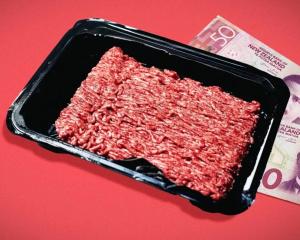
Addressing the co-operative's annual meeting in Dunedin yesterday, Mr Taggart said it was occurring just when it looked like the ''bureaucratic playing field'' was being levelled up for sheep and beef and recognising the sector's lower environmental footprint relative to dairy.
''The apparent lack of rigour in relation to the social, economic and environmental impacts of this strategy is disturbing,'' he said.
Just over 30 people attended the annual meeting at Otago Museum, including staff and directors. It was the first time the meeting had been held in Dunedin.
Mr Taggart described the 2018 financial year as a ''reality check'' for Alliance Group.
Both the board and management were disappointed with the previously announced $8million operating profit for the year to September 30, which was down from the previous year's $20.2million.
Climatic extremes, both dry and wet, conspired against farmers and the company. Stock flows were erratic, causing challenges across the business.
It was some comfort that the co-operative had been able to buffer farmers during adverse climatic conditions, he said.

During dry conditions across most of New Zealand in late 2017, the company maximised processing capacity to help farmers destock and held farm-gate pricing to support shareholders when they needed it most. It also moved more than a million head of store stock commission-free.
Alliance continued to undergo substantial change and that pace of change within the business had not eased this year, Mr Taggart said.
Diversity of markets, combined with increasing wealth in developing countries, augured well for its future.
Alliance was entering a new era and it felt like it was ''on the cusp'' for step-change within the business. There was clear potential to capture more value from the market.
The company has previously copped criticism over its decision to bring in overseas workers for its Southland plants.
Mr Taggart said labour availability was a huge challenge for its processing plants. Its inability to attract adequate staff cost farmers money in lost value, employees money in lost wages opportunity, and New Zealand money in lost export revenue.
There was ''no silver-bullet solution'' and, instead, it would come from a combination of advanced robotics, more flexible work practices, innovative recruitment and foreign labour.
''We see offshore recruitment as a last resort and would much prefer to recruit domestically.''
The company made no apology for a rigorous approach to recruitment that aimed to ensure it matched roles to people's physical fitness and avoided compromising employees' safety by asking them to work alongside people with drug or alcohol impairment.
''Inevitably in today's society, this will mean a proportion of applicants will not be suited to the jobs we have on offer,'' he said.
Chief executive David Surveyor said it had been a very strong spring and strong grass growth had meant a slow start to production, holding prices up. All companies struggled to meet Christmas chilled demand.
The company's performance in cattle had ''not been good enough'' and there was a very clear programme to become a much more effective player in that space.
At a board meeting this week, directors approved investment to create a new value-add facility at the Lorneville plant.
Safety continued to be the company's ''No1'' priority and there had been a 34% reduction in the number of people injured during the year.
The company was now moving into the area of wellbeing and mental health and it had begun a programme where employees undergoing personal problems could be connected with professional advice.
During the question session, New Zealand Meatworkers Union Otago-Southland secretary Gary Davis said a decision by the board several years ago to reduce money from the maintenance budget was having a serious impact.
Every plant in the country was having problems with maintenance. Lorneville, which used to run at 100%-101% efficiency, was now down to the mid-90s, Mr Davis said.
It was having a major effect on the ability of people to get their tallies out and it was frustrating for those going to work every day when maintenance had not been done or scheduled.
He believed it was having a major effect on the company's profitability.
In response, Mr Surveyor said the company had a change in its approach to maintenance but its maintenance spend had not diminished; in fact, the total had increased in the last few years.
There used to be an unplanned approach to repairs and maintenance and now it was trying to have a planned approach.
There were ''some learnings'' to transition from one model to another and it had not been without ''hiccups'', he said.














